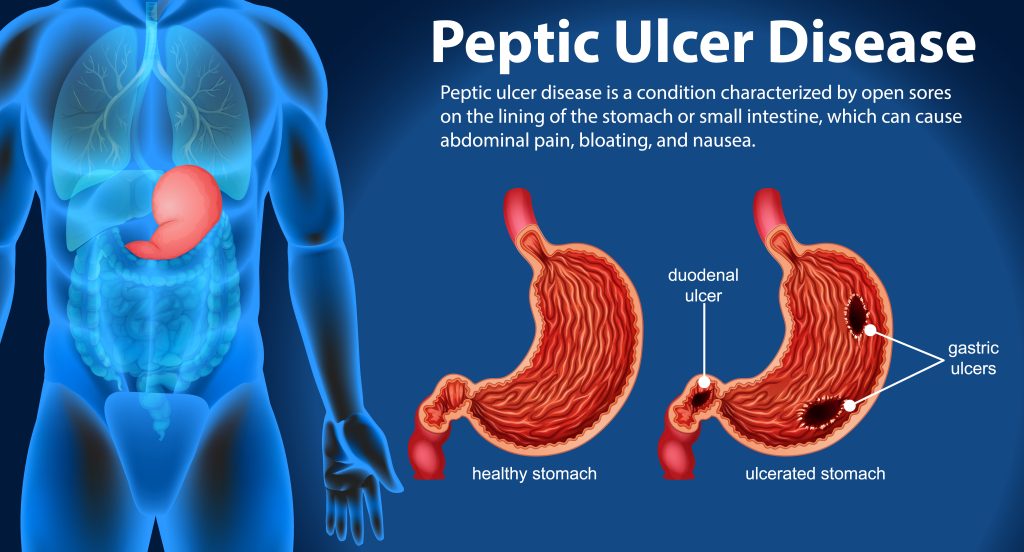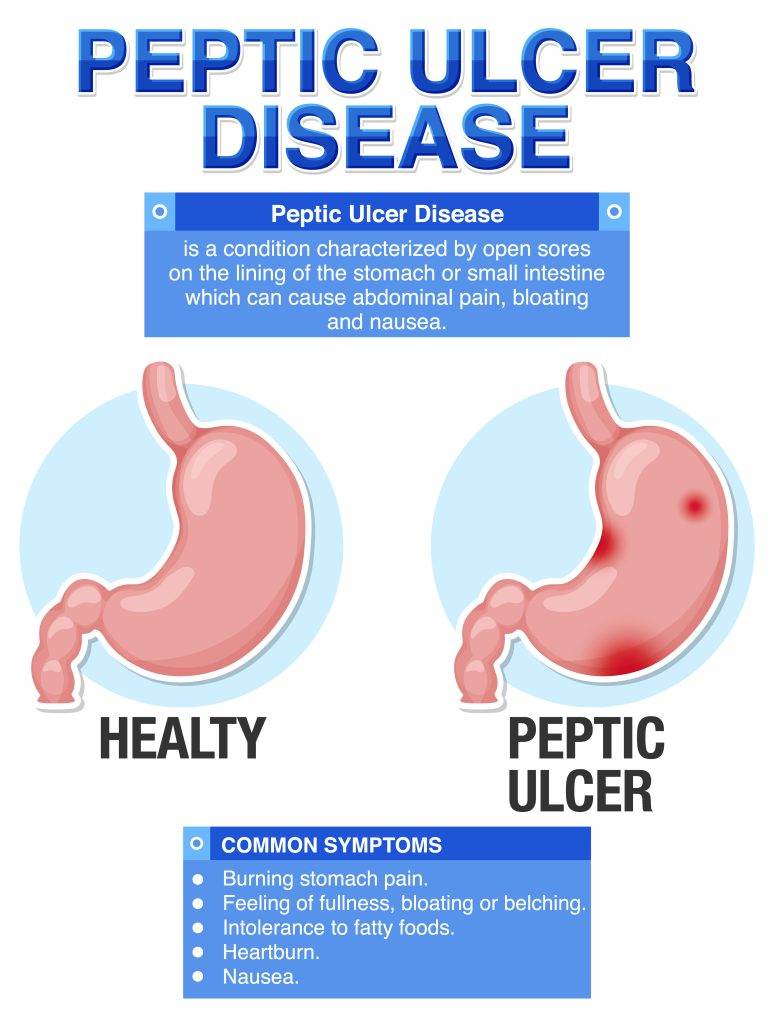Anal warts, fleshy growths that develop around the anus or in the lower rectum. These warts are caused by certain strains of the human papillomavirus (HPV), a common sexually transmitted infection
Peptic Ulcer Treatment in Mumbai, Peptic ulcers are open sores or raw areas that develop in the lining of the stomach or the upper portion of the small intestine (duodenum).
December 5, 2024
Peptic ulcers are open sores or raw areas that develop in the lining of the stomach or the upper portion of the small intestine (duodenum). These ulcers can cause burning pain, discomfort, and other unpleasant symptoms.

Other factors that may contribute to the development of peptic ulcers include:
The most common symptoms of peptic ulcers include:
In severe cases, peptic ulcers can lead to complications such as internal bleeding or perforation (a hole in the stomach or intestinal wall), which may require immediate medical attention.

Test | Purpose |
Endoscopy (EGD) | Visually examine the stomach and duodenum using a flexible tube with a camera |
Barium swallow or upper GI series | Use X-rays to visualize the digestive tract after ingesting a barium contrast solution |
Breath test or stool test | Detect the presence of H. pylori bacteria |
Blood tests | Check for signs of bleeding or anemia |
The treatment approach for peptic ulcers depends on the underlying cause and the severity of the condition. Common treatment methods include:
The recovery period for peptic ulcers can vary depending on the severity of the condition and the treatment approach. With proper medical management and lifestyle changes, most peptic ulcers can heal within 4 to 8 weeks.
Pre-operative Care: If surgery is recommended for your peptic ulcer, a Gastrointestinal Surgeon in Mumbai will provide you with specific instructions for pre-operative preparation. These may include:
Post-operative Care: After undergoing surgery for a peptic ulcer, it’s essential to follow the Gastrointestinal Surgeon’s post-operative instructions carefully. These may include:
A Gastrointestinal Surgeon will guide you through the entire recovery process, addressing any concerns or questions you may have.
While stress itself does not directly cause peptic ulcers, it can exacerbate symptoms and delay healing. Managing stress through relaxation techniques, counselling, or other methods can support the treatment process.
No, peptic ulcers themselves are not contagious. However, the H. pylori bacteria that can cause ulcers can be transmitted through close contact with infected individuals or contaminated food or water.
While not all peptic ulcers can be prevented, certain lifestyle changes can reduce the risk, such as avoiding excessive alcohol consumption, quitting smoking, and using NSAIDs only as directed by a healthcare professional.
Seeking prompt health advice for Peptic Ulcers, Gut Health is not just for symptom relief but also for screening associated problems.
If you are near Mumbai, you can Contact Senior Gastrointestinal Surgeon in Mumbai – Dr Pradeep Shriyan
Don’t ignore the troublesome symptoms of Peptic Ulcer, IBS or related issues. Remember, early diagnosis and treatment of Peptic Ulcers, Stomach pain, etc are crucial for preventing potential complications and ensuring a successful outcome.

Contact Us
Anal warts, fleshy growths that develop around the anus or in the lower rectum. These warts are caused by certain strains of the human papillomavirus (HPV), a common sexually transmitted infection
Tenesmus is a term used to describe a persistent and often painful sensation of incomplete bowel evacuation, or the feeling that you need to pass stools even after having a bowel movement.
Proctitis Treatment in Mumbai. Proctitis is an inflammation of the rectum, which is the last section of the large intestine before the anus.
IBS (Irritable Bowel Syndrome) is a chronic disorder that affects the large intestine (colon). It is characterized by abdominal pain, bloating, and changes in bowel habits, etc.
Developed by PRAZONE Web Solutions
Copyright © 2024 All rights reserved by
Dr Pradeep Shriyan